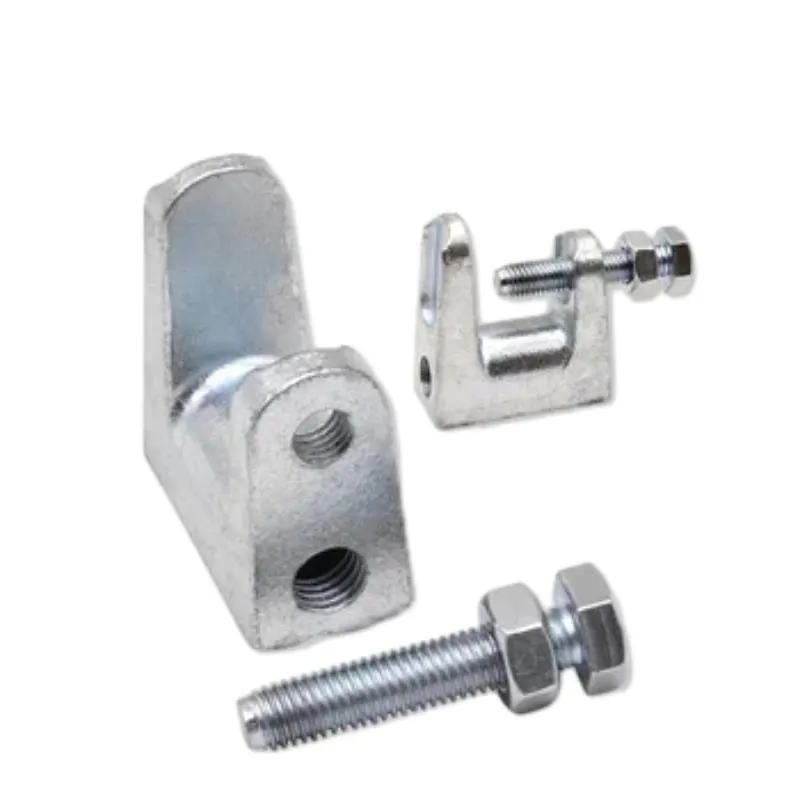Nov . 06, 2024 11:13 Back to list
Washer Selection Guide for 1-4 Bolt Sizes and Applications
Understanding Washers for 1/4 Bolts Types, Applications, and Selection
When it comes to fastening applications, the right choice of hardware is crucial for ensuring the stability and longevity of the assembled parts. Among the essential components used in these applications are washers, specifically for bolts. This article delves into washers designed for 1/4-inch bolts, exploring their types, applications, and importance in various industries.
What is a Washer?
A washer is a thin, flat disc typically made of metal or plastic that is used to distribute the load of a threaded fastener such as a bolt or nut. Washers serve several purposes, including preventing loosening due to vibration, providing a smooth bearing surface, and protecting the surfaces of the parts being fastened. For 1/4-inch bolts, washers are particularly important as they help to create a secure and stable connection.
Types of Washers for 1/4 Bolts
1. Flat Washers These are the most common type of washers used with bolts. They have a simple design and provide a large bearing surface area, which helps to distribute the load evenly across the surface. Flat washers also minimize the risk of damage to the material being fastened.
2. Lock Washers Lock washers are designed to prevent loosening during vibration or movement. They typically have a helical or split design that creates tension between the nut and the surface, ensuring that the assembly remains tight. For 1/4 bolts used in dynamic applications, lock washers are often recommended.
3. Fender Washers These washers are larger in diameter than standard flat washers and are often used when the surface area of the bolt requires more support. They are particularly useful when fastening sheet metal to prevent the bolt head from pulling through.
4. Belleville Washers Often referred to as spring washers, Belleville washers are conical-shaped and offer a spring effect. They can absorb shock and vibrations, which makes them suitable for applications where there are fluctuations in load.
5. Rubber Washers Rubber or neoprene washers provide a non-slip and cushioning effect. They are used primarily in applications where moisture or corrosion is a concern, as they offer resistance to various environmental factors.
Applications of 1/4 Bolt Washers
Washers for 1/4-inch bolts find applications across various industries, including
washer for 1 4 bolt

- Construction In concrete, steel, and wood constructions, washers are crucial for ensuring that bolts remain secured over time
. An improperly secured bolt can lead to structural failure.- Automotive Automotive applications often require the use of lock washers to maintain tight connections under the constant vibrations encountered during operation.
- Electronics In appliances and electronic devices, rubber washers are commonly used to dampen vibrations and protect sensitive components.
- Furniture When assembling furniture, flat and fender washers are often used to provide stability and prevent damage to wood surfaces.
Selection Considerations
When selecting washers for 1/4 bolts, several factors should be considered
- Material Depending on the environment and application, the material of the washer is crucial. Steel washers are strong and durable, while stainless steel offers corrosion resistance. Plastic washers may be more suitable for specific applications where electrical insulation is needed.
- Thickness The thickness of the washer can affect its load distribution capabilities. Thicker washers can provide better support but may require a proper assessment based on the specific application.
- Diameter Choosing the right diameter ensures that the washer fits snugly against the surface. Installing a washer that is too large can lead to an inefficient load distribution, while one that is too small may not provide adequate support.
Conclusion
In summary, when it comes to using washers for 1/4 bolts, understanding the different types of washers available and their specific applications is essential. Proper washer selection can significantly enhance the performance and longevity of bolted connections, making them a critical component in various industries. By carefully considering factors such as material, thickness, and diameter, individuals can ensure that their fastened assemblies remain secure and robust over time.


